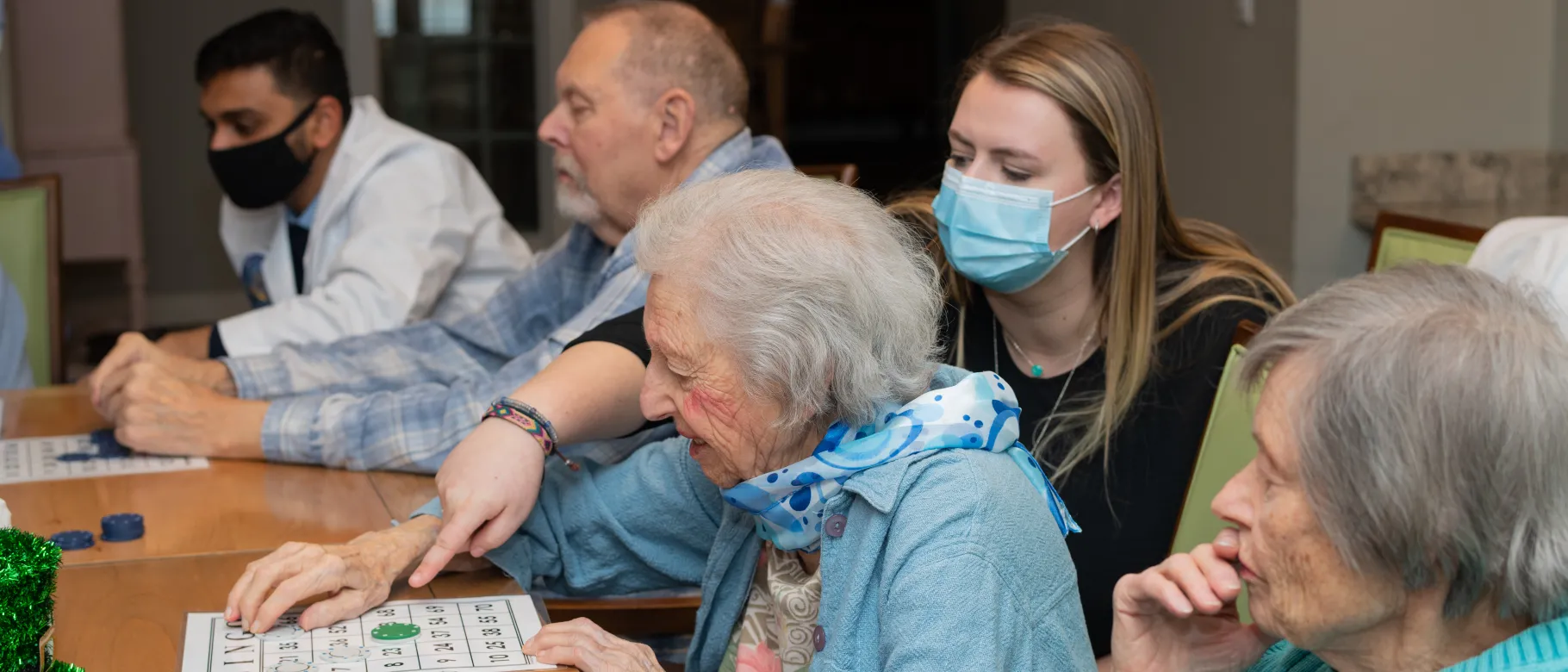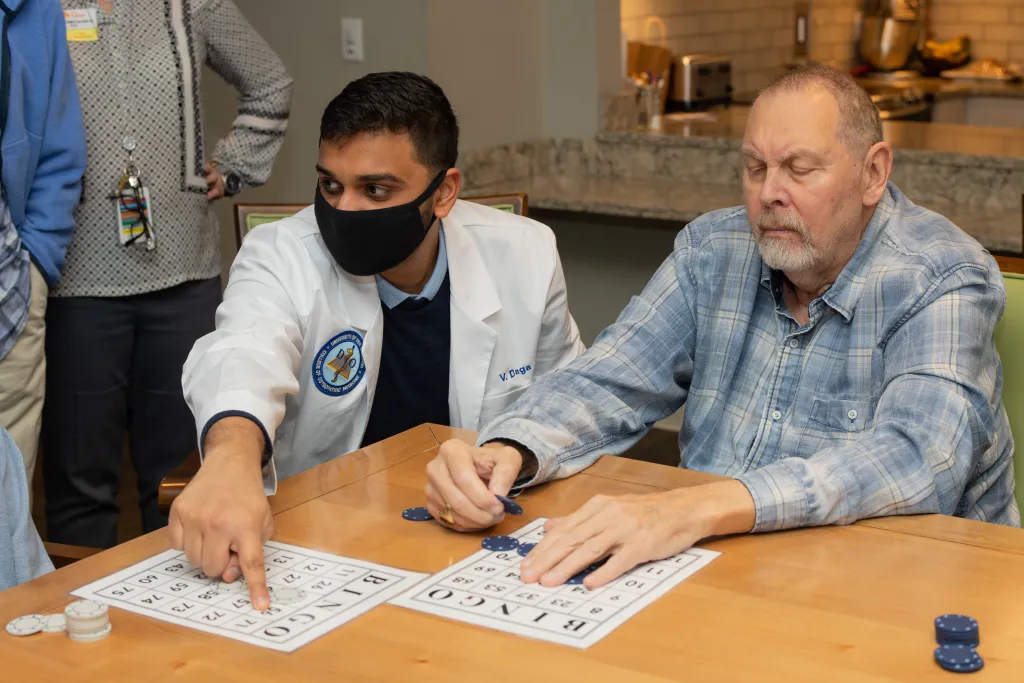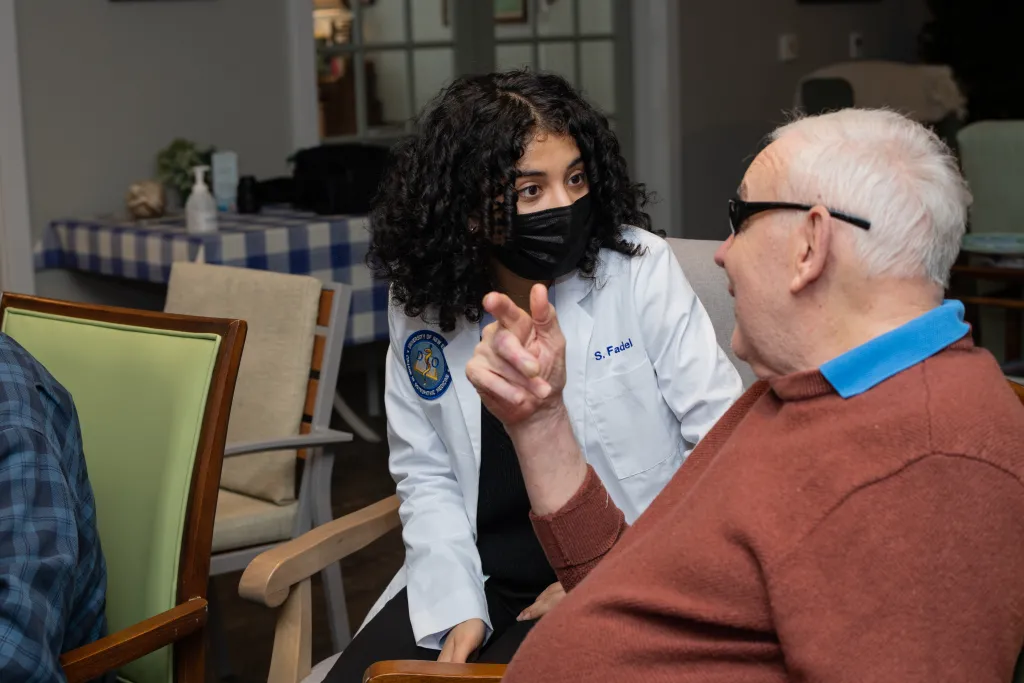UNE, The Cedars partner to study optimal engagement of people living with dementia

More than 6 million Americans are living with Alzheimer’s Disease, a number expected to rise by 14 million by 2050. While significant efforts to find a cure for Alzheimer’s Disease and Related Disorders (ADRD) are under way, less attention is given to meaningful engagement of people living with these chronic cognitive changes.
But, with the support of $100,000 from an anonymous donor, The Cedars, a Portland-based, nonprofit living community for older adults, has partnered with the University of New England to study and understand how people with cognitive changes associated with dementia can best continue to grow and engage.
An interprofessional group of students from the UNE College of Osteopathic Medicine (UNE COM) and Master of Science in Social Work (M.S.W.) and Master of Science in Occupational Therapy (M.S.O.T.) programs will conduct a scoping review of scientific literature to help identify best practices, evidence-based strategies, and gaps in knowledge, said Susan Wehry, M.D., chief of Geriatrics and associate clinical professor in UNE COM, who is spearheading the project in partnership with Angela Hunt, RPT, M.S., administrator, chief operations officer at The Cedars.
Students involved with the project include Samantha Morgan (D.O., ’25), Samaa Fadel (D.O., ’25), Vrushabh Daga (D.O., ’25), Eleanor Demmons (D.O., ’25) Ally Lott (M.S.O.T., ’23), and Victoria Kavanaugh (M.S.W., ’24).
Additionally, an expert panel and a stakeholder advisory group, including people living with dementia, will review the findings and help guide the project.
Wehry said she believes this “deep dive” into the science of engagement and learning among individuals with brain changes associated with dementia “will not only serve to enrich the lives of people living with dementia but may help alter societal perceptions of the ability of such individuals to continue to engage, learn, and grow.”
The project will culminate in the creation of a guide of widely accepted, person-centered practices for use by multiple disciplines that promote successful engagement and enrichment of persons living with dementia and in the design of transformational, follow-up studies.
“This study is a perfect complement to the Mayer-Rothschild Foundation award to The Cedars and University of Maine Center on Aging,” Hunt noted. “With our academic partners, we are at the leading edge of new standards of excellence.”
Lott, the Master of Science in Occupational Therapy (M.S.O.T.) student, said the project is invaluable to her as she prepares to work with geriatric populations in her career. She also said working with an interprofessional group of health care students has strengthened her understanding of the occupational therapy field and how to work across disciplines to enhance patient care.
“This experience has provided me the opportunity to explore research regarding ways to promote learning and growth in everyday life for adults living with dementia,” Lott remarked. “Collaboration with this group has given me insight into unique professional perspectives and has furthered my understanding of the distinct value of occupational therapy within an interprofessional team.”
Daga said the project is transformative in the field of geriatrics, as the research will integrate the patients’ own views.
“This dyad partnership is a fantastic opportunity for UNE graduate students to form interprofessional teams to collectively brainstorm methods to improve the quality of life for older adults,” he said. “This collaboration has the potential to have groundbreaking impacts for adults living with dementia and their caregivers.”

